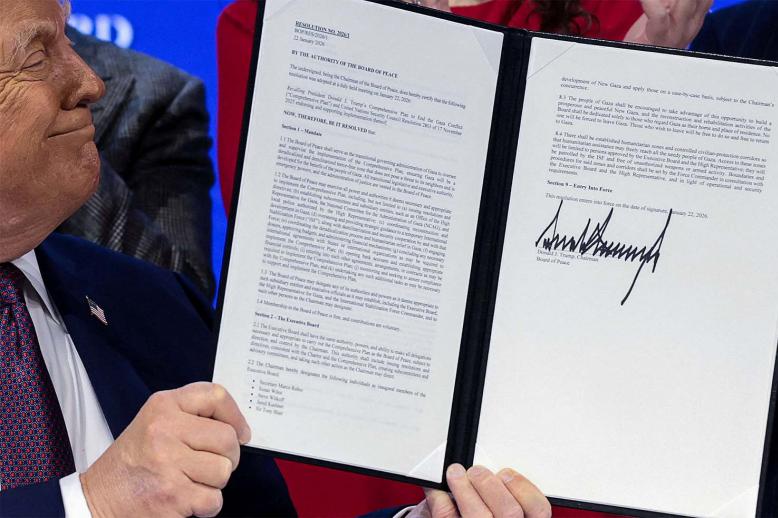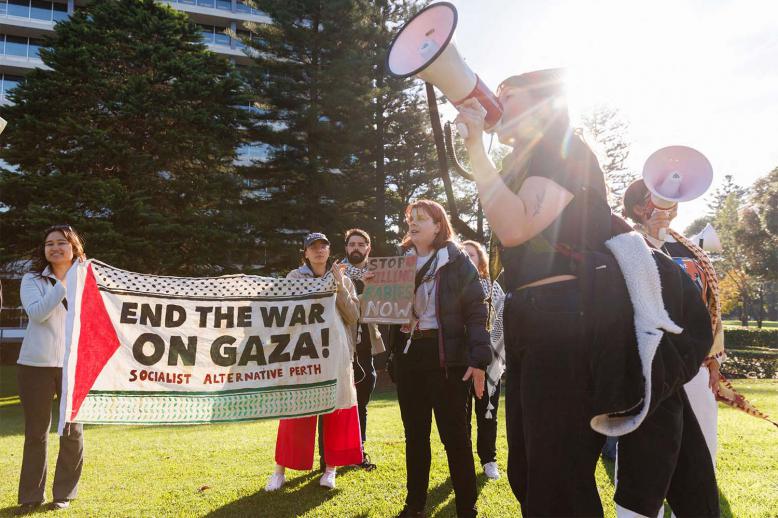Iraq’s judiciary is facing a real challenge
Today, Iraq is suffering from different crises and thus the post-2003 experience is on edge. Hence, it is safe to say that this country does not need more problems that might lead to the collapse of its all geographical unity.
In recent years, it has been clear that social division represents a danger to Iraq's security affairs. It is a lesson that politicians must have learned from. On the ground, the situation is completely different.
Nowadays, there is a real test for this assumption. Lately, Rafi al-Issawi, former minister of finance during al-Maliki's government 2010-2014, has handed himself to the Iraqi judiciary.
A Sunni politician, al-Issawi was accused of various counts, including corruption, supporting terrorism, and agitation against Shiite. Now, he wants to defend himself against all these allegations. This has resulted in conflicting explanations that will cast a shadow on the community interplays.
Some Shiite parties say there is a plan to revive the role of Muslim Brotherhoods (MB) in Iraq. They believe that al-Issawi is considered a prominent pillar of this group and assume that this will return Iraq to the era of civil war engulfing many cities in 2006.
However, numerous indications are refuting this idea. The project of MB has failed in Iraq and the whole Arab world. Since the Arab Spring failed to meet peoples’ aspirations in many countries, MB’s project has also started to fade geographically and culturally in several Sunni cities in Iraq. It has become a pariah. Therefore, no one is willing to sacrifice the stability in these cities for the sake of al-Issawi or MB.
Some other parties assert that there is an American conspiracy behind al-Issawi's return to Baghdad for targeting the Popular Mobilization Forces (MPF). They presume that this project will destabilize Iraq from a sectarian standpoint. They also fear that al-Issawi and his patrons will reuse the sectarian rhetoric in the Sunni geography. This will threaten domestic peace in Iraq.
In return, the moderates criticizing such stand repeat that this group of the political elite wants to exploit al-Issawi's trial to impose its will on the official authorities. It is further trying to mobilize its popular bases to launch a war against the US in Iraq. Besides, it attempts to stigmatize the others of being clients to the US in case they reject such desires.
Another assumption proclaims that al-Issawi's return is an attempt to escalate the situation in the al-Anbar province. He has a strong and widespread tribe in this important city. He might incite people there to work against the PMF, and he might encourage his tribe to control this city.
To deny this viewpoint, we have to maintain that the truth is completely different. Now, tribes are calling for integration into the Iraqi state's structure. They reject any action to recall the policies of sectarian revenge that had paved the way for the appearance of al-Qaeda and Daesh in this part of Iraq. They are struggling to preserve the positive achievements they have made since 2017. Therefore, we can argue that al-Issawi's return will not lead to any real changes in the political or tribal balances there.
Al-Issawi return might also be interpreted as a part of the political competition between the Sunni blocs themselves.
There are two great Sunni blocks: The first is led by Khamis al-Khanjar who is accused of supporting al-Issawi. The second block is led by the parliament speaker, Mohammed al-Halbousi. Some reports have exposed that there might be a plot to replace al-Halbousi with al-Issawi. As expected, this kind of zero games will affect the fragile security of the Sunni cities in Iraq.
Therefore, al-Halbousi revealed in an interview that he would back the fair trial of al-Issawi. He thinks that such a trial will lead to rebuilding trust between the judiciary institution and the Iraqi people. This means that the talking on the Sunni-Sunni conflicts because of the al-Issawi’s case is just an exaggeration that is never accepted by analytical minds.
Whoever follows the statements of the new leaders in Iraq can reach this conclusion: "They know that they are in a strong need of the international society to help them to tackle the Iraqi complicated questions. They know that they must send clear messages in this regard. They will have to accomplish actual political and social reconciliation".
By this, Baghdad will restore its role in Iraqi politics, and new rules for the political game will be set. This will be part of a great political change in the Iraqi landscape and will contribute to reducing the speeches of hatred among Iraqis.
In the end, there would be an urgent need to isolate the judiciary arena from the political contest. If the judiciary succeeds in proving that it can trial politicians away from political bargains, and if the political class accepts the decision of the judiciary to convict or exculpate al-Issawi, just then we can confidently say Iraq is now moving in the right direction.
Diyari Salih is an Iraqi academic working at al-Mustansiriyah university. He holds a Ph.D. in Political Geography from the University of Baghdad and a Post-Doctorate in International Relations from the University of Warsaw. His research focuses on geopolitical issues in Iraq. He tweets at @DiyariFaily







